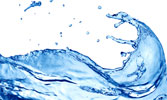Hawaii State DOE Adopts Defined STEM Curriculum

Defined STEM, the flagship curriculum supplement of Defined Learning, today announced its five-year partnership with OpTerra Energy Services and the Hawaii State Department of Education (HIDOE) to support Ka Hei, a statewide strategic program kicked off in 2014, that educates students about sustainable energy transitions happening across schools throughout the state.
Hawaii is the most fossil-fuel-dependent state in the nation, and the state’s schools spend $48 million a year on electricity alone. The Hawaii Clean Energy Initiative aims to relieve the state’s dependence on oil by using 100% clean energy by 2045.
The goal of the Ka Hei program is to integrate innovative energy technology with meaningful learning experiences, all while reducing energy costs.
“We are pleased to be part of this partnership with Defined Learning and OpTerra to create such a versatile educational experience for Hawai’i’s students,” said Assistant Superintendent of the Office of Curriculum, Instruction and Student Support, Suzanne Mulcahy. “We live in one of the most isolated places in the world, and we are stewards of the land we love. We need to take care of our land by using our renewable resources.”
OpTerra is designing and implementing a wide variety of new energy technologies that aim to lower costs and help each school across the islands become more sustainable. To date, energy experts from Defined Learning and OpTerra teams have given more than 300 teachers hands-on professional development to analyze scalable technology such as wind turbines and solar panels in their classrooms.
The Defined STEM curriculum is available to all 256 schools across the eight islands of Hawaii, which form one large school district. Grade-specific lessons give teachers an understanding of green initiatives that can be used in their classrooms. Defined STEM performance tasks challenge students with hands-on projects that include research and engaging videos that align with the Common Core and the newly adopted Next Generation Science Standards. In completing the tasks, students will learn core principles of science and will see the relevance of community initiatives such as moving to solar energy, limiting waste, encouraging recycling, and reducing water usage with low-flow toilets. They will also discover potential careers related to sustainable energy.
Tools and ideas to transform education. Sign up below.
